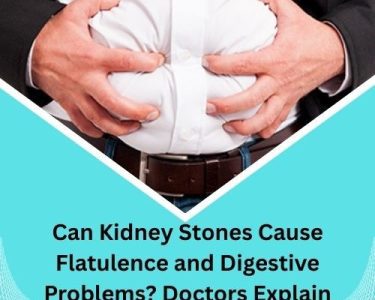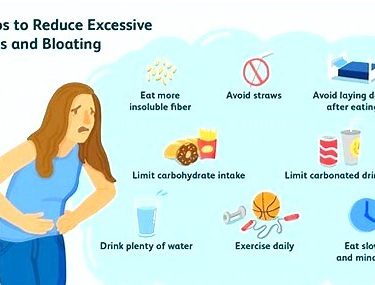When most people experience excessive gas, bloating, or uncomfortable digestive pressure, they rarely connect it to their liver health. But recent research shows a surprising and powerful connection between how Liver and Flatulence Are Related. If you’ve been dealing with unexplained bloating, embarrassing gas, or digestive discomfort, this hidden link may finally give you answers.
It’s important to mention here that gas issues aren’t always caused by poor diet alone. Sometimes symptoms like flatulence – digestive flatus appear when the liver isn’t performing its detoxification duties properly. Many people even wonder: Is flatulence a sign of liver problems? Let’s uncover the truth and understand how liver function can influence digestion, gut balance, and gas formation.
What is Flatulence?
Flatulence is the release of gas from the digestive tract through the rectum. This gas accumulates as a natural byproduct of digestion and results from a mixture of:
- Swallowed air
- Chemical reactions during digestion
- Fermentation of undigested food by bacteria in the large intestine
The human digestive system produces gas every day—and lots of it. On average, a healthy person may pass gas 10 to 20 times per day, though some may experience more depending on diet, lifestyle, and underlying health conditions.
Flatulence is completely normal. However, excessive or painful flatulence can be uncomfortable and sometimes socially distressing.
Understanding the Liver’s Role in Digestion
Your liver is one of the most hardworking organs in the body. It supports digestion, filters toxins, regulates metabolism, and helps process nutrients. When the liver becomes sluggish, inflamed, or overloaded, digestion is directly affected.
This is one of the biggest reasons why liver flatulence occurs in people dealing with liver stress or dysfunction. When the liver cannot produce enough healthy bile—essential for breaking down fats—the digestive system slows, causing fermentation in the gut. This fermentation results in the production of excess gas. So yes, the connection between liver disease and flatulence is real and often overlooked.
How Poor Liver Function Causes Flatulence
Let’s explore exactly how a distressed liver contributes to gas buildup:
Impaired Bile Production
Bile helps digest fats properly. When the liver is compromised, bile quality drops. Undigested fats ferment in the gut, producing gas, bloating, and discomfort.
Slow Digestion
A sluggish liver slows the movement of food through the intestines. Slow digestion allows bacteria to overgrow, increasing gas formation.
Toxin Accumulation
If the liver cannot filter toxins efficiently, these toxins enter the digestive system, irritating the gut lining and creating inflammation. This inflammation contributes to flatulence and abdominal pressure.
Gut Microbiome Imbalance
A weak liver often leads to poor gut health. Studies show that a damaged liver can trigger bacterial imbalance in the intestines, causing excessive gas production and sensitivity.
These mechanisms clearly show how flatulence liver disease symptoms can appear even before other noticeable liver issues develop.
Is Flatulence a Sign of Liver Problems?
While occasional gas is normal, persistent or excessive flatulence may sometimes indicate underlying liver issues. The liver plays a key role in digestion and detoxification, and when it is under stress, digestive symptoms can appear—even before more serious signs of liver disease are noticeable.
Why Flatulence Can Be Linked to Liver Health
The liver produces bile, which is essential for breaking down fats in your diet. When liver function is impaired, bile production or flow may decrease, leading to poor fat digestion. Undigested fats then ferment in the gut, producing gas, bloating, and discomfort. Additionally, a stressed liver can disrupt the gut-liver axis, causing inflammation in the intestines and an imbalance in gut bacteria—both of which increase flatulence.
Signs That Excessive Gas May Be Related to Liver Problems
If your gas is persistent and accompanied by other symptoms, it may be an early warning sign of liver stress. Look out for:
- Persistent bloating after meals: Feeling overly full or gassy even after small portions.
- Frequent belching or passing gas: A noticeable increase in daily flatulence.
- Pain or heaviness near the upper right abdomen: This is where the liver is located, and discomfort here can indicate strain.
- Fatigue: Chronic tiredness is a common symptom of a stressed liver.
- Pale or yellowish skin (jaundice): A hallmark sign of impaired liver function.
- Indigestion and nausea: Poor liver function can slow digestion and irritate the gut.
- Reduced appetite or unexplained weight loss: These can accompany liver-related digestive issues.
Other Subtle Signs to Watch For
Beyond flatulence and the symptoms listed above, liver stress can manifest in less obvious ways:
- Dark urine or pale stools: Indicates changes in bile processing.
- Swelling in the abdomen or ankles: Often linked to fluid retention from liver dysfunction.
- Itchy skin or rashes: Accumulation of toxins due to poor liver filtration can irritate the skin.
When Flatulence Alone Isn’t Enough
It’s important to note that flatulence by itself is not a definitive sign of liver disease. Many other factors—including diet, stress, and digestive conditions—can cause gas. However, when gas is persistent, unexplained, or accompanied by other liver-related symptoms, it warrants attention.
Steps to Support Your Liver and Reduce Flatulence
Even before seeing a doctor, you can take steps to support liver health:
- Eat a balanced diet rich in vegetables, fruits, and fiber.
- Reduce fatty, fried, and processed foods.
- Stay hydrated and limit alcohol consumption.
- Incorporate liver-supporting foods like garlic, turmeric, and leafy greens.
- Consider gentle herbal supplements such as milk thistle after consulting a healthcare professional.
Monitoring your body’s signals, including persistent flatulence, can help you catch early liver problems and prevent further complications.
Common Liver Issues That Trigger Flatulence
Several liver conditions may lead to gas buildup:
Fatty Liver Disease
One of the most common causes of liver and flatulence are related is fatty liver. When excess fat accumulates, bile flow becomes impaired, leading to indigestion and gas.
Hepatitis
Inflammation of the liver can slow digestion and disrupt gut balance, increasing flatulence.
Cirrhosis
Advanced liver scarring alters metabolism and digestion, often causing severe bloating and digestive distress.
Liver Congestion
A congested liver from toxins, alcohol, or poor diet often presents as bloating and gas.
In all these cases, flatulence is a digestive signal that something deeper—often the liver—is struggling.
How Liver Stress Impacts the Gut
Another important point to understand is that the liver and gut communicate constantly. This is known as the gut–liver axis. When the liver is under pressure, the gut becomes inflamed, and when the gut is inflamed, the liver becomes overwhelmed.
This cycle creates symptoms like:
- Gas buildup
- Intestinal cramps
- Irregular bowel movements
- Sensitivity to foods
- Acid reflux
- Stomach pressure
When this cycle continues, you may also see symptoms mentioned in popular searches such as can magnesium cause flatulence?—because mineral imbalances become more common when liver detox pathways are impaired.
How to Reduce Gas by Supporting Liver Health
If your liver is contributing to gas and bloating, supporting liver function can significantly improve the symptoms.
Improve Your Diet
- Reduce fried and fatty foods
- Avoid processed sugars
- Increase leafy greens
- Add bitter foods like karela and arugula
- Drink plenty of water
Support Bile Flow
Natural foods like lemon water, ginger tea, and fiber-rich vegetables help increase bile production.
Strengthen the Gut
Probiotics, fermented foods, and fiber help restore good bacteria and reduce fermentation.
Avoid Liver Stressors
Cut down on:
- Alcohol
- Fast food
- Artificial sweeteners
- Excessive painkillers
Natural Remedies
Many people search for natural treatment for flatulence because herbal support can relieve gas while improving liver detoxification.
Herbs such as milk thistle, turmeric, dandelion root, fennel seeds, and cumin support liver function and digestion simultaneously.
When to See a Doctor
If you experience:
- Persistent or severe bloating
- Rapid weight loss
- Jaundice
- Unexplained fatigue
- Abdominal swelling
you should consult a healthcare provider. Flatulence paired with these symptoms could indicate underlying liver disease that needs timely treatment.
Early diagnosis makes recovery easier, and liver-related gas problems often reduce dramatically once the root cause is addressed.
Final Thoughts
The connection between liver and flatulence are related is deeper than most people realize. Gas, bloating, and digestive discomfort aren’t always just about food intolerances or poor eating habits. Sometimes, they are early signs that the liver is struggling to detoxify, digest, and regulate metabolism.
By improving diet, supporting liver function, and restoring gut balance, most people experience dramatic improvements in flatulence, energy levels, and overall well-being. And as you read through health topics like flatulence – digestive flatus or explore natural remedies, remember that your liver plays a central role in keeping your entire digestive system working smoothly.
With proper care, natural remedies, and lifestyle support, you can ease gas, protect your liver, and restore long-term digestive comfort.




